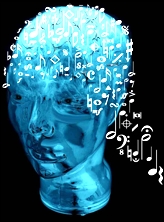What is "systematic musicology"?
What is the difference between music and mere sound? Why does music exist and what are its psychological and social functions? How do music instruments work? What motivates people to make and listen to music? How do musical abilities develop? How can musical behavior be understood? How does the feeling get into the music and what meanings are communicated by sounds and movements? How is musical information processed by human beings and can machines emulate that?
Questions of this kind characterise the discipline of systematic musicology. SysMus brings together the insights and epistemologies from natural , social and formal sciences as well as humanities and cultural studies. On this basis, SysMus attempts to explain music as a physical signal, as a physiological process, as sound and movement, as experience, as human behaviour, as social and cultural phenomenon and as information.
The main subdisciplines of SysMus are music acoustics, music aesthetics / philosophy / sociology, music information sciences, music physiology, and music psychology. Their approaches and methods are borrowed from the corresponding parent disciplines (physics, philosophy and so on), as well as music theory and analysis, musical pratice (composition, performance), and the other main subdisciplines of musicology (ethnomusicology and historical musicology). Acoustical communication is studied in both SysMus and linguistics, and performance is studied in both SysMus and sport studies; disciplines of this kind are intrinsically multi- and interdiscipilinary.
Contact
Office and Library
Library Opening Hours:
Wednesday: 10am - 1pm
Friday: 11am - 2pm
Only during the semester, on days when there is teaching.




